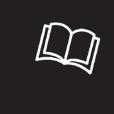

THE OUTSIDER ADVANTAGE
Ebury Edge, an imprint of Ebury Publishing, 20 Vauxhall Bridge Road, London SW 1V 2SA
Ebury Edge is part of the Penguin Random House group of companies whose addresses can be found at global.penguinrandomhouse.com
Copyright © Ciera Rogers and J. Elle 2024
Ciera Rogers and J. Elle have asserted their rights to be identified as the authors of this Work in accordance with the Copyright, Designs and Patents Act 1988
First published in the United States by Portfolio, an imprint of Penguin Random House LLC in 2024
First published in the United Kingdom by Ebury Edge in 2024
www.penguin.co.uk
A CIP catalogue record for this book is available from the British Library
Trade paperback ISBN 9781529146776
Book design by Alissa Rose Theodor Map illustrations by Alexis Farabaugh
Printed and bound in Great Britain by Clays Ltd, Elcograf S.p.A.
The authorised representative in the EEA is Penguin Random House Ireland, Morrison Chambers, 32 Nassau Street, Dublin D02 YH 68
Penguin Random House is committed to a sustainable future for our business, our readers and our planet. This book is made from Forest Stewardship Council® certified paper.
For Mom
SUCCESS Road Map
NOTE: If you can follow this road map to success precisely, without wavering from it for even an instant, you will most definitely, unequivocally, without a doubt achieve . . . a massive migraine. Banging your head onto a wall will likely ensue. Proceed with caution.
Traditional Path
Ciera’s Path
Start
MOVE TO LA TO TRY SOMETHING NEW

COMPLETE INTERNSHIPS

SECURED WITH FAMILY CONNECTIONS
GET REJECTED FROM HUNDREDS OF JOB INTERVIEWS


GRADUATE HIGH SCHOOL, TOP OF CLASS

GRADUATE COLLEGE FUNDED BY GRANTS WITH STARRY-EYED OPTIMISM
BUILD RÉSUMÉ IN COLLEGE Traditional Path
GRADUATE HIGH SCHOOL WITH GOOD GRADES

ALMOST LOST IT ALL

GRADUATE COLLEGE, TOP OF CLASS

NETWORK AT PARTIES AND EVENTS



OBTAIN ADDITIONAL DEGREE, LEVERAGE HIGHER SALARY $
SECURE JOB WITH STRONG STARTING INCOME


CREATE BABES GROW COMPANY AND BURST ON TO THE FASHION SCENE

MOVE UP CORPORATE LADDER


AMERICAN DREAM UNLOCKED


CELEBRATE 10 YEARS IN BUSINESS

Finish
BUILD RÉSUMÉ IN COLLEGE

COMPLETE INTERNSHIPS SECURED WITH FAMILY CONNECTIONS
GRADUATE
GRADUATE COLLEGE, TOP OF CLASS


OBTAIN ADDITIONAL DEGREE, LEVERAGE HIGHER SALARY


SECURE JOB WITH STRONG STARTING INCOME
AMERICAN

DREAM UNLOCKED
MOVE UP CORPORATE LADDER Finish


Introduction
WHY LISTEN TO ME?
Don’t listen to me.
Listen to you.
I wish I could fi ll these pages with a foolproof guide or blueprint for success for you to follow like a recipe. But there isn’t one. And don’t trust anybody who tells you there is. Success doesn’t work like that. If you don’t believe me, turn back a page and follow the little car along that map again.
Success is personal. Success takes diff erent shapes. It’s not a straight line, as the world would have you believe.
Instead of telling you blow by blow how to make something of yourself, The Outsider Advantage is going to take you on a journey— my journey— of discovering how I dug into myself and used my diff erences to build lasting success by starting my own business. And doing so against impossible odds: I started Babes, my multimillion- dollar fashion business, when I lived on a borrowed couch with ten bucks to my name and no family or support system to fall back on. I did it all without a fancy business degree,
credentials, or corporate experience. Instead, I leaned into the unconventional life experience I did have to unlock game-changing potential, and Babes grew from a word-of-mouth social selling venture to an international brand worn by Kim Kardashian, Lizzo, and more. You will have a front-row seat as I unpack moments in my life that left huge marks on me and would influence my future— like how in high school “home” was sometimes my mother’s red jeep and how being kidnapped at three years old ended up being one of the most challenging yet powerful experiences I’ve endured, overcome, and used to propel me forward. You’ll hear about the highs and lows of entrepreneurship, when I went to my fi rst Hollywood party, when Beyoncé made me feel seen, the six months when I ran my business while basically living in a hospital, when I made my fi rst million, and the moment I almost lost it all overnight. I hope in showing you my meandering journey—and how I’ve used the things people often see as disadvantages as fuel to create something big—The Outsider Advantage will inspire you to accept yourself for who you are, use your experiences no matter how diff erent they might be from your peers’ or from what is considered “normal,” and confidently chart your own course.
This book can’t guarantee you’ll become a millionaire or that your wildest dreams will come true overnight. It also isn’t going to erase the traumatic scars from things you’ve lived through. What it is going to do is give you a searchlight to shine in those dark corners to unearth gems— memories, moments, pain, obstacles, trauma, experiences, diff erences— that you can use to build success in your life! Because there is treasure there. And believe me: I’m going to help you mine that shit.
THE OUTSIDER ADVANTAGE
Harness the Power of What’s in Your Closet
In 2012, when I moved to Los Angeles with nothing but the clothes on my back, I realized the American dream was bullshit.
The idea that there was a level playing fi eld of opportunity and because of that I could accomplish what anyone else could felt impossible to wrap my mind around as I sat on my roommate’s couch, stomach churning. My head throbbed. I couldn’t remember the last time I’d eaten. Coff ee could hold a person for only so long. I eyed the ten- dollar bill in my purse. I skimmed the top shelf where my roommate kept her food. My shelf, below it, was bare. It was late summer and I—the fi rst college graduate in my family— was bumming it rent-free on the couch in a friend of a friend’s one-bedroom apartment. Several weeks earlier I’d bought a oneway ticket from Houston. My plan was simple: get an entry-level job in public relations. But, several weeks later, I still had nothing to show for myself.
I’d just turned on the faucet when a key slipped in the door. Stacy, my roommate, strode in.
“Hey,” I said.
“So?”
My brow cinched in confusion.
“Look, Ciera, you’re my girl but I need you to start helping me pay the rent.”
My heart knocked against my ribs. I swallowed, on edge at the exasperated bite in her tone. “I’m trying to fi nd something.”
“I know, but . . .” She scrubbed a palm down her face. “I need half by the end of the month or I gotta fi nd someone else to take your place.” She walked past me into her room while I stood there, shocked. Before she closed her bedroom door, she tucked her lips in a sympathetic smile. “Girl, I can’t afford this place on my own. I need you to fi nd a way.” The door closed.
The world tipped sideways. It was the fourth of August. Half of the rent was one thousand dollars. I had ten dollars. Her words replayed in my head over and over. I gulped down a dry breath, trying to slow my racing pulse. How was I going to get that much money? That fast? This was Stacy’s place. She’d moved to Los Angeles from Houston years before I had. This wasn’t personal. She couldn’t carry me. Nor did I expect her to. When Stacy off ered me her couch, I agreed to cover part of the rent. Now I actually had to do it . . . in less than a month.
I fell back onto “my” couch and checked my phone to see if there were any side job postings I’d missed. Since my PR job applications had gotten zero bites, I started taking styling gigs to make a little cash. But swiping through that day, there was nothing new posted and no job application responses in my email.
Twenty- six days.
One thousand dollars.
Or I would be homeless again.
This time in a city where I knew no one.
Uprooting myself to move to Los Angeles was an impossible decision, but when Houston began to feel like being on a hamster wheel, I couldn’t lie to myself anymore— staying there was a dead end. I remember one interview in the late afternoon at a hotel in southwest Houston. I dressed in a mismatched skirt suit with a low- cut, ’70s- style blazer. The skirt was dark blue and a bit worn at the hem. The blazer was gray with black stitching. It wasn’t designer or even department store, but it’s what I had. Beneath the blazer was a basic black top. I’d found the whole ensemble at a thrift store for a few bucks. I got all my clothes, for as long as I could remember, from thrift stores because they were cheaper than Walmart and Kmart. But as soon as I sat down, the hiring manager’s gaze darted from my face to my outfit. The mood at the table shifted. She smiled, tucking a strand of blond hair behind her ear. I was applying for an entry-level corporate position, but she looked at me as if my attire suggested I was applying for a parttime job at Hot Topic. (No shade to Hot Topic. I look back on my goth phase with glee.) After introductions, she dove straight in.
“You don’t have any experience working in hotels?”
“I don’t.” I’ve never even stayed in one, I thought. “Well.” She cleared her throat. “Tell me a bit about what you could bring to a marketing position here.” She narrowed her eyes ever so slightly. I could feel the conclusion she’d already drawn in her head about me. I wasn’t getting this job. Just like I hadn’t gotten the dozen others I’d interviewed for weeks before. It appeared I had two choices: refuse to waste my time and walk straight out
of that hotel and not look back, or go through the motions, clinging to hope that this time I would be wrong. I sat up in my seat, looked her right in the eye and said, “I know how to convince people to spend money better than anyone.”
She met my eyes. I had her attention now.
“It’s all about messaging. A brand makes a promise to a potential customer. Anyone who sees this place or visits your website should get the impression that staying here is an experience they crave.”
“Anyone?” Her brow raised. “Our target mark—”
“Your market is bigger than you think. Whether someone has the money to stay here isn’t relevant. If people want something bad enough, they’ll fi nd the money. You’re missing an entire segment of income if you’re only marketing to those who can afford you.”
Her stare roved my resume again. “And how do you know all this?”
I eyed my watch. That question was presumptuous and disrespectful. Why did the how matter? I cleared my throat, warring with how honest to be. How much of me to let her see. Perhaps I hadn’t shown enough of myself in other interviews? I sat straighter and met her eyes, rubbing my clammy hands on my skirt. Here goes nothing.
“I’m . . . innovative and clever.”
Her lips pursed.
“For example.” I leaned in. “After this interview, I’m taking a gentleman, to a strip club where I have an agreement in place with a group of strippers to ensure he spends an exorbitant amount of
money on them. Afterward, the girls and I split the proceeds fi ftyfi fty.”
She guffawed; her cheeks flushed. The rest of the interview was lackluster. I didn’t get the job, big surprise. The rejection email was something about how I lacked traditional marketing experience. They encouraged me to reapply after I’d done a few internships. I don’t know if she believed my strip club hustle or not, but I wasn’t lying. I’d done it a handful of times when I was desperate for cash. After college, I made money however I could because I was stubborn, resourceful, creative, hardworking— and broke. (Not the kind of broke where I can’t splurge on my favorite wine once a month. I’m talking about the kind of broke where hot water is how you lull your empty stomach to sleep.)
My inability to fi nd a job in Houston wasn’t for lack of trying or laziness. There was a lack of opportunity for someone like me, with a degree but no experience in the industry I wanted to go into. I’d expanded my search from top PR fi rms to companies with any sort of marketing department. If they had a job listing, I was applying. After a while, if the job posting for a business position even mentioned the words “entry level,” I clicked APPLY. But like the hotel interview, they all wanted internship experience. In 2012, most internships were unpaid. Those that did off er pay usually off ered a small stipend, but they required long hours, making it difficult to have a job as well.
I didn’t have the privilege of working for free. Because I needed to work to eat.
While in college in Houston, I worked diff erent jobs, styling people with their own wardrobes, delivering items, helping out at a
retail store for a few hours each week, and hosting at a nightclub. I took whatever work I could fi nd while carrying a full academic course load and maintaining straight As. But I never accumulated enough cash to do anything besides pay rent and utilities, keep my cell phone on, and help my mom with whatever she might need. I juggled ten thousand balls as a full-time student, assuming that once I walked across that graduation stage, things would be different. I dreamed of fi nding a job that suited my natural talents. I was good at marketing. Instinctually. But here I was, months after graduating, degree in hand, and being turned down at yet another job interview. Forced to rely on stretching cash from my side hustles. This wasn’t the life I wanted. The idea of college had been shoved down my throat by every guidance counselor, community group leader, and teacher for as long as I could remember. I followed the steps, graduated with a perfect grade point average, and it amounted to nothing more for me than dead- end jobs and no time (or energy) left to build anything sustaining. I did all the fi rstborn things and yet this American dream I’d been promised was ever elusive.
So I set my sights on LA, hoping to fi nd a PR job that better aligned with my skills and actual experience, which was in the fashion industry: working retail, styling wardrobes, buying for stores, and vintage thrifting. Los Angeles was the fashion mecca, so I thought I might have a better shot at landing something there. I knew I could pick up small jobs to sustain myself if needed, as I had in Houston. I had nothing to lose in moving. I packed a small bag, told my mom goodbye, and stuff ed all the money I had into my pocket— two hundred dollars. When the plane took off , I
